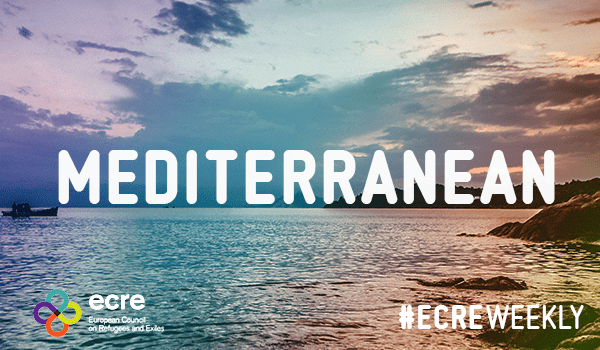The European Commission urges relocation to other member states from Italy where the number of arrivals has surpassed 11,000 in 2021. According to Missing Migrants project more than 600 people have lost their lives on the Mediterranean since January attempting to reach Europe.
According to local media the arrival of more than 2,100 people to Lampedusa over 24 hours on 9 and 10 May resulted in a dramatic situation with more than 700 people sleeping rough at the Favarolo pier before 500 people were transferred to the Imbriacola district hotspot. 200 reportedly remain at the pier and emergency accommodation under establishment with a capacity of 250 is set to host 1,500 people. On 11 May it was reported that around 20 people rescued by a commercial vessel off Libya where approaching Lampedusa. According to data from the ministry of interior a total of 11,000 people have arrived to Italy by sea in 2021, compared to 4,105 over the same period in 2020 but still significantly lower than numbers during the peak of arrivals in 2015. At a joint press conference on 10 May with UNHCR, EU home affairs commissioner, Ylva Johansson urged relocation to other member states through “a temporary arrangement to deal with the situation”. United Nations High Commissioner for Refugees, Filippo Grandi also present at the press conference reminded media and public that: “We are talking about manageable numbers” and regretted the loss of life on the Mediterranean.
Data from Missing Migrants project tracking deaths along migratory routes reports that 621 lives have been lost on the Mediterranean in 2021 as of 10 May compared to 279 in the same period of 2020. Over the last weeks the Mediterranean has been the scene of several tragic and deadly incidents. On 2 May at least 11 people drowned when a rubber dinghy capsized off Zawiya, Libya. An additional 12 people were intercepted by the so-called Libyan coast guard and returned to Libya where they were detained. On 9 May at least five people, including a woman and a child, drowned when a boat carrying 45 people capsized off Libya. According to Safa Msehli, spokesperson for the International Organization for Migration (IOM), local fishermen managed to rescue 40 people and returned them to the shore. Msehli further stated that the capsized boat was among nine others carrying more than 700 migrants intercepted by the so-called Libyan coast guard and added that the survivors were taken to overcrowded detention centres, where the UN migration agency fears more threats to their lives and violations of their rights. UNHCR Libya reports of 42 ship-wreck survivors returned to Tripoli on 10 May by the so-called Libyan coast guard with burns on parts of their bodies while another 23 people are missing and one body was recovered. The NGO hotline Alarm Phone on 10 May reported of 75 people in distress south of Malta urging rescue by Maltese authorities. According to media, the people in distress were rescued by Maltese armed forces with delay on 11 May. On 13 May the hotline alerted authorities of 100 people in distress off Khoms, Libya on a rubber boat taking in water with five people reportedly dying. The travellers were intercepted by the so-called Libyan coast guard and returned to Libya.
In early May the UN Refugee Agency (UNHCR) released a warning of the mounting refugee and migrant deaths in the Central Mediterranean stating: ”This tragic loss of life underscores once again the need to reestablish a system for search and rescue operations in the Central Mediterranean coordinated by States”. The Alan Kurdi rescue vessel operated by German NGO Sea-Eye was granted permission to leave port in the island of Sardinia by the regional administrative court (TAR) after being blocked for seven months by Italian authorities in the ongoing crack-down on the civil search and rescue fleet. The vessel has set sail for maintenance work in Spain. On 13 May 2021 MSF Sea announced the urgent relaunching of its search and rescue activities in the central Mediterranean: “as the direct result of Europe’s reckless policies of non-assistance at sea, condemning people to die”. The organisation, it states: “won’t stay silent in the face of this manmade disaster!”
For further information:
- ECRE, Med: Investigations Reveal Frontex’ Complicity in Interceptions and Returns to Horrors in Libya, April 2021
- ECRE, Search and Rescue: Italy and Libya Reaffirm Bilateral Relations as Transcripts of Controversial Italian/Libyan Communication Emerge, Crack-down on Civil Rescue Fleet and Deaths at Sea Continue, April 2021
Photo: ECRE
This article appeared in the ECRE Weekly Bulletin. You can subscribe to the Weekly Bulletin here.

